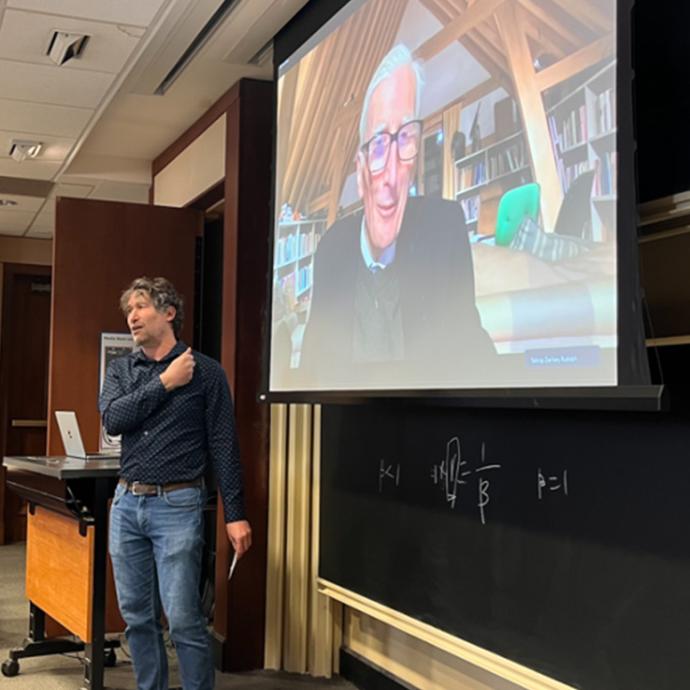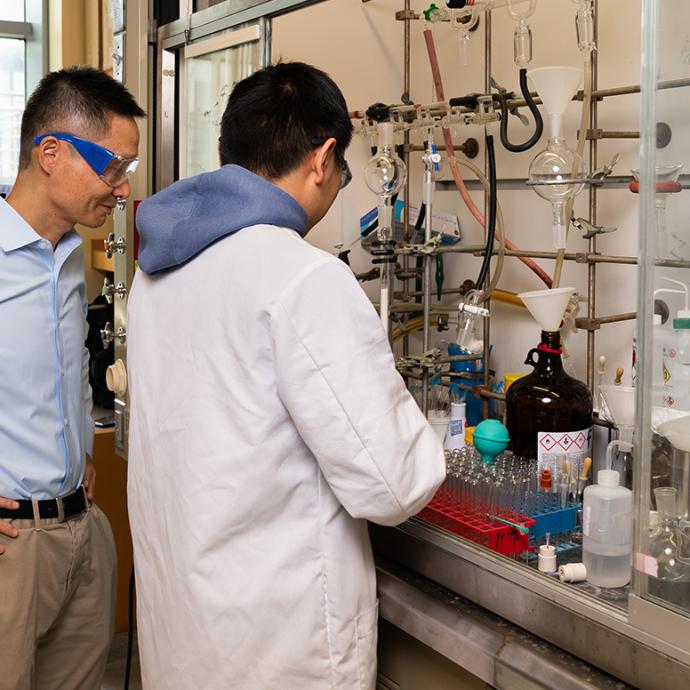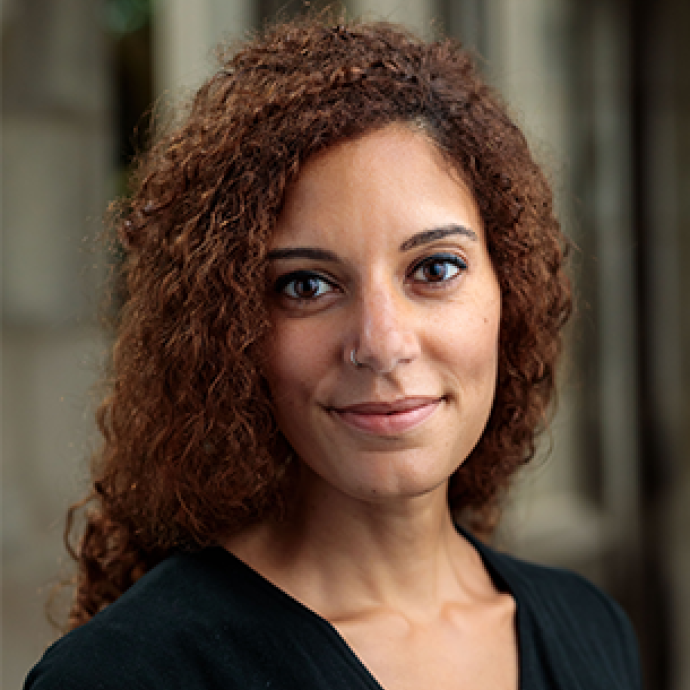It was the Monday before Fall Quarter finals when 12 Harris School students boarded a plane for Cambodia, and though most had just finished taking their exams a week early, some were still writing research papers on the seemingly endless flights to Phnom Penh.
The added pressure was a small price to pay after devoting the last seven months to studying Cambodia's health care sector as part of Harris School's annual International Policy Practicum course, which travels to a different country each year. Led by Harris School Senior Lecturer Charles Wheelan and Graduate Lecturer Felicity Vabulas, the class spent 15 days meeting with government leaders, NGOs and journalists. There the students rounded out a theoretical understanding of foreign aid effectiveness with a face-to-face glimpse of a country devastated by genocide and salient poverty.
"Public policy isn't something you can learn from a textbook all the time," said Vabulas. "They got to test out ideas that they've been having on people who are eating and living and breathing this stuff."
For five years Wheelan has taken IPP classes to countries including India, Brazil, Jordan and Turkey, as a way for students to experience working on an international study commission. He said these commissions often face the challenge of meshing textbook theory with applied practice to generate recommendations from various, often conflicting, opinions.
"[Students] become more accustomed to just the messiness of policy," he explained. "They need to use their own background and Harris School experience to reconcile what they're hearing and weave something together into a sensible tapestry."
Class trip will produce recommendations
About 40 second-year students applied for seats in the class, and from the moment these 12 were selected in May 2009, their work began. They spent the summer reading historical accounts that exhumed Cambodia's grim past, stories of how the Khmer Rouge regime slaughtered an estimated 1.7 million people from 1975 to 1979. As a result, the number of Cambodia's certified doctors had been nearly erased.
With support from Harris School Dean's International Council member Ed Bachrach, founder of the nonprofit organization Build Cambodia, and a grant from the Abbott Foundation, students received access to officials at the U.S. Embassy and Cambodia's Ministry of Health, the primary governmental agency for health initiatives. The group spent hours talking with representatives from The World Bank, Asian Development Bank, USAID and the editor of The Cambodia Daily newspaper about the challenges of rebuilding the country's health care sector.
"It's just a mess," said Elizabeth Vivirito, a student in the class. "We saw that all the time between organizations, and even within an organization, the two hands weren't talking to each other."
Vivirito traveled to Asia three times last year alone and said poverty in Cambodia was unlike anything she's seen. The facts are stark, though somewhat misleading, she said. The country is hailed for being on track for meeting Millennium Development goals like combating HIV/AIDS, tuberculosis and malaria, while remedial health problems such as water and sanitation pass under the radar of many donor-driven organizations.
"Very simple things like washing your hands and reducing your child's diarrhea if you boil water; they had no conception of this whatsoever," Vivirito explained. "There are great successes there, but when you look at maternal and child health, it's a very, very sad story. It gets lost in the shuffle."
The class will hone in on this oversight in a 40-page collective memo, which is due in February. Previous IPP classes have presented their memos to members of the Harris School Dean's International Council, Visiting Committee and scholars from the featured country.
Vivirito, one of the editors of the memo, said it will include a situational analysis and recommendations for executing a long-term foreign aid exit strategy that provides incentives to rebuild the Ministry of Health so it can support its citizens once again.
"I think every developing country struggles with health care," Vabulas said. "It's even a bigger challenge in Cambodia when you're starting from ground zero."
-Steven Yaccino










 —Prof. Chuan He
—Prof. Chuan He
